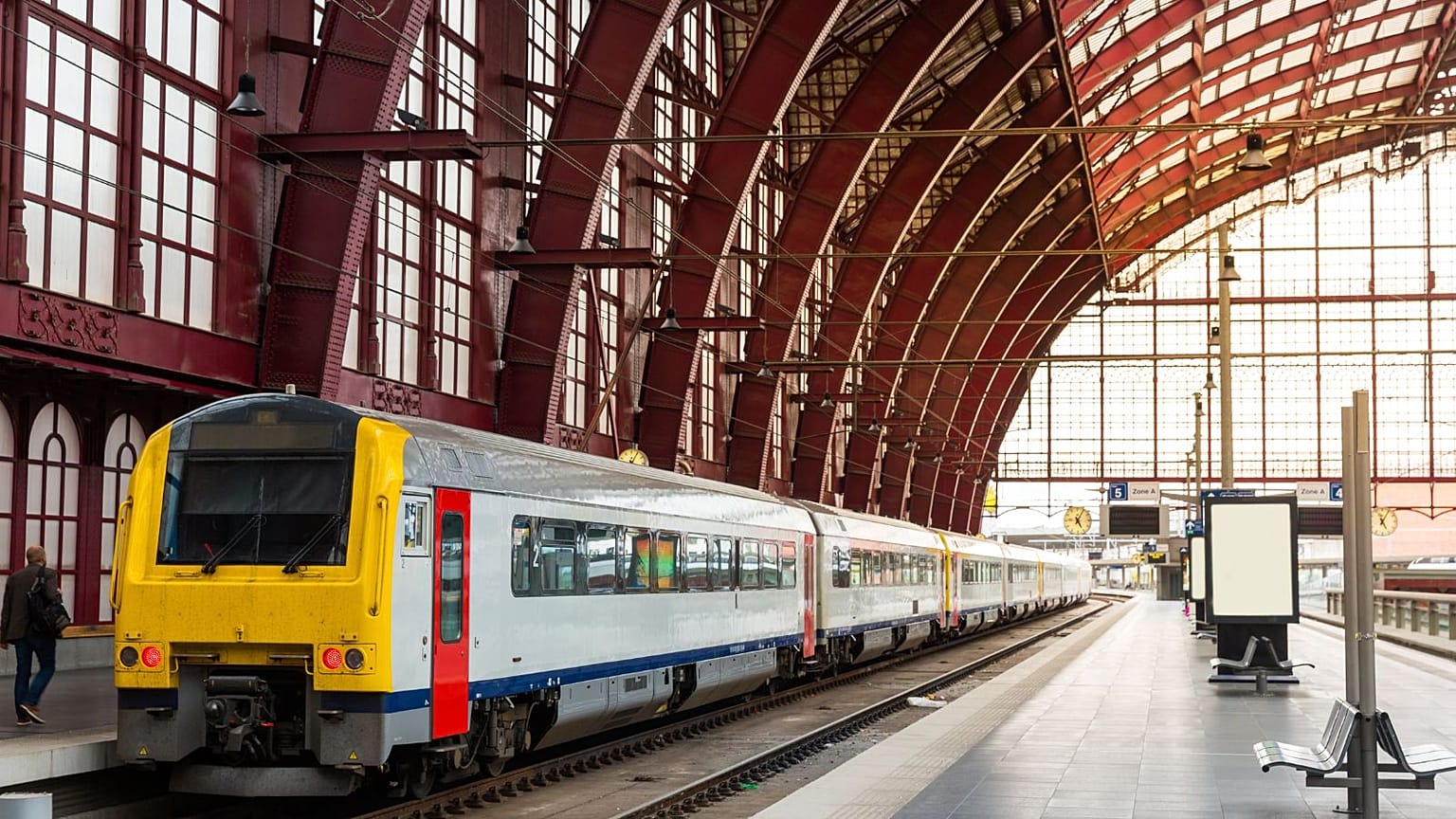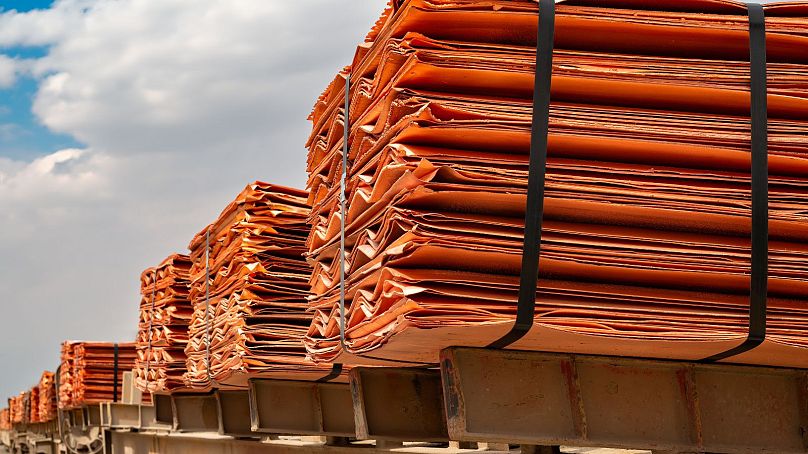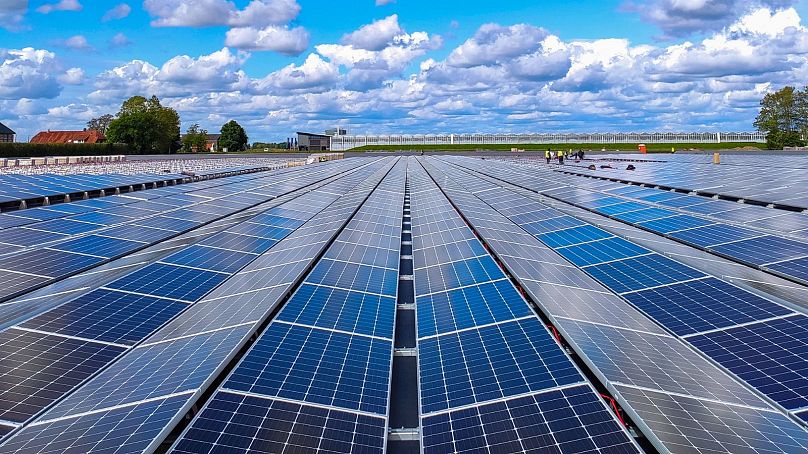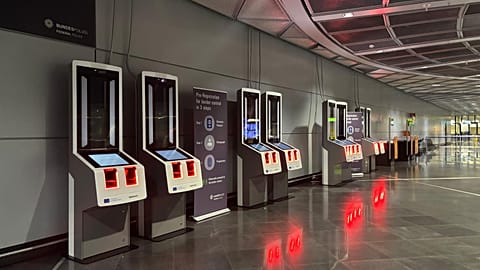Europe's biggest rail operators are reporting problems with copper theft on their lines and with the price of the metal set to rise many are concerned.
Copper theft is delaying thousands of trains and causing millions of euro worth of damage to rail infrastructure across Europe.
You may wonder why thieves stealing a metal could be so significant as to stop trains from running. Well, because trains can’t run at all without copper.
It is the essential component in things like signal cables, grounding wires and power lines. Without them, trains don’t have the power or communications to run.
Why do thieves want to steal copper?
One tonne could be sold to a metal recycling facility in the UK for around £6,600 (€7,726) last March, according to a UK All-Party Parliamentary Group report on metal theft. While thieves might not be able to sell stolen goods to an official recycling site, they are likely to at more informal scrap yards.
With the price of copper predicted to rise in the next two years, rail operators are concerned that copper theft will become yet more popular.
They are looking to increase their defences and several European countries have even been employing DNA technology to beat the thieves.
So just how big of a problem is copper theft on Europe’s railways and what exactly can we do to stop it?
Where in Europe is copper theft a big problem?
The scale of the problem is revealed by the data from some of the continent’s biggest train operators.
The appetite for copper led to British trains being delayed for 84,390 minutes in the 2022/23 financial year at a cost of £12.24 million (€14.33 million), figures released to Euronews Travel by Network Rail show.
In Germany, there were 450 cases of metal theft on Deutsche Bahn-operated railways, a spokesperson for the train company told us. This affected 3,200 trains which were delayed for a total of 40,000 minutes and cost Deutsche Bahn €7 million.
France operator SNCF told us that more than 40,000 trains were affected by metal theft in their most recent figures from 2022, causing over €20 million in losses.
Belgium’s railways were also affected and saw 466 acts of copper theft in 2022, which was a 300 per cent increase compared to 2021 and led to 33,000 minutes of delays.
But not every country is struggling with this problem. A spokesperson for Austrian operator ÖBB told Euronews: “Last year, we recorded copper thefts in the low single-digit range throughout Austria, which did not cause any disruption to train services.”
What are train companies doing to tackle copper theft?
While the numbers involved are significant, they have decreased massively over the last 10-15 years. Deutsche Bahn says cases have fallen by around 85 per cent in Germany from 3,200 in 2013 to 450 in 2023.
But tackling the crime has its challenges.
Rail tracks and infrastructure are of course spread out across countries and go through remote areas. This makes it difficult to monitor and to catch thieves in action.
In recent years, companies have increased cooperation with the police and used CCTV and drones to improve security.
Several operators including Network Rail, SNCF and Deutsche Bahn have even turned to DNA technology to stop thieves.
“We always talk about the DNA fear factor,” says James Brown, the managing director of Selectamark, the company that provides the technology. “Criminals know that DNA links them to crimes. Anything that’s DNA marked or protected immediately becomes a harder target in the criminal's mind. So it works really well as a deterrent.”
Selectamark puts a synthetic DNA marker on the cable that makes it possible to identify. This can help the police directly link a thief to a particular theft. It also uses grease with a DNA marker that can transfer to a person if they touch it, which lasts for weeks on their skin, cannot be washed off and can be seen under UV light. Rail companies then put up signage advertising that the DNA products are in use which can put off any potential thiefs.
Are copper prices rising?
Despite these longer term drop offs, rail companies are concerned by a recent uptick that they say is coinciding with increased copper prices. Prices which show no signs of slowing down.
Analysts at BMI, a Fitch Solutions unit, forecast that copper prices will rise this year as well as in 2025.
It’s a sentiment echoed by a recent report by the Economist Intelligence Unit which put the 2025 price rise as a “sharp” increase.
One of the reasons for this is the global shift towards renewable energy which will see increased demand for the metal.
Copper is vital for electricity-related technologies. Over the next two decades the energy sector will make up 40 per cent of global demand for copper, the International Energy Association predicts.
As things stand these thefts are costing millions of euros. Many of Europe’s train operators are state-owned or reliant on state money so taxpayers are footing part of the bill.
Copper theft is a complicated crime to stop and with the price of copper increasing it’s one that is unlikely to go away. But rail companies have made strides in tackling it in recent years and they are hopeful that with deterrents and other strategies they can keep the thefts in check and the number of disruptions for passengers down.




















